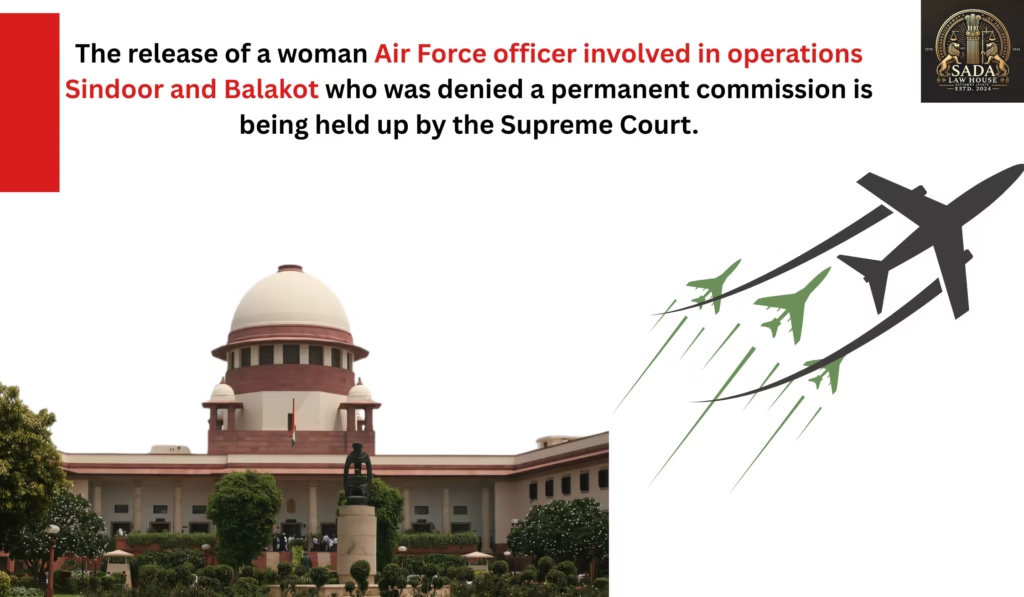Supreme Court Rejects Plea Against ₹229-Crore Gateway of India Jetty Project, Cites Ongoing Bombay HC Review
Trending Today Supreme Court Rejects Plea Against ₹229-Crore Gateway of India Jetty Project, Cites Ongoing Bombay HC Review Supreme Court Stops Karnataka Government from Removing Sri Anjaneya Temple Head Priest LEGAL JOB OPPORTUNITY AT KKR INTERNSHIP OPPORTUNITY AT LEGAL SAVVY FACULTY DEVELOPMENT PROGRAMME BY UNITED UNIVERSITY Apple Shifts iPhone Production to India as Exports to US Surge 76% in April 2025 India’s Victory in Operation Sindoor Undermined by Diplomatic Delay: Brahma Chellaney LEGAL INTERNSHIP OPPORTUNITY AT INDUSLAW JOB OPPORTUNITY AT TRIVEDI & PARASHAR JOB OPPORTUNITY AT LITIGATION WING OF THE INDIAN ARMY Supreme Court Rejects Plea Against ₹229-Crore Gateway of India Jetty Project, Cites Ongoing Bombay HC Review PRABAHAT KUMAR BILTORIA 30 May 2025 The Supreme Court of India has declined to reconsider the ₹229-crore Gateway of India jetty project, leaving the matter to the Bombay High Court. The project, facing opposition from local residents, continues amid debate over heritage preservation and urban infrastructure development. Supreme Court Declines to Reconsider ₹229-Crore Gateway of India Jetty Project On May 28, 2025, the Supreme Court of India refused to entertain a plea challenging the construction of a ₹229-crore passenger jetty near Gateway of India, Mumbai. The bench, comprising Chief Justice BR Gavai and Justice AG Masih, noted that the matter is already being addressed by the Bombay High Court and urged a swift resolution before the monsoon season ends. Opposition Cites Heritage and Public Consultation Concerns The petition was filed by the Clean and Heritage Colaba Residents Association, alongside individual petitioners, who expressed concerns about the potential damage to Mumbai’s iconic heritage seafront. They argued that the project was implemented without public consultation and accused authorities of prioritizing elite interests by including VIP lounges and parking for 150 vehicles. It was also alleged that the jetty would be used for private ferries and celebrity yachts. “Not In My Backyard” Syndrome Cited by the Court The Supreme Court referenced the “Not in My Backyard” (NIMBY) syndrome—a common reaction where individuals oppose infrastructure projects that affect them personally, despite broader public benefit. CJI BR Gavai highlighted similar cases of resistance to civic development, including urban transit and sewage treatment facilities, and underscored the necessity of developing coastal infrastructure. Arguments For and Against the Jetty Project Representing the petitioners, Senior Advocate Sanjay Hegde argued that the jetty primarily serves a privileged segment of society and lacks transparency. He claimed that the project offers private docking access for those wishing to travel to Alibaug for leisure. Countering these claims, Aishwarya Bhati, the Additional Solicitor General representing the Maharashtra Government, emphasized that the jetty is a public infrastructure project aimed at improving daily commute options for citizens. She categorically dismissed allegations of exclusivity. Bombay High Court to Decide Before Monsoon Ends Although the Supreme Court did not rule on the merits of the case, it acknowledged the pending hearing in the Bombay High Court scheduled for June 16. The High Court had earlier declined to halt the piling work for the jetty and is now expected to deliver a verdict before the monsoon concludes. Conclusion: Balancing Urban Growth with Heritage Preservation The ₹229-crore Gateway of India jetty project highlights the ongoing challenge of balancing urban infrastructure development with the preservation of historic and cultural landmarks. While the project promises to improve connectivity and benefit daily commuters, it has sparked concern among local residents and heritage advocates. As the legal proceedings continue in the Bombay High Court, the case serves as a critical example of how civic planning must consider both public utility and community impact. The outcome may shape future approaches to coastal development projects across Mumbai and beyond. Leave a Reply Cancel Reply Logged in as Sada Law. Edit your profile. Log out? Required fields are marked * Message* Live Cases Supreme Court Rejects Plea Against ₹229-Crore Gateway of India Jetty Project, Cites Ongoing Bombay HC Review Supreme Court Rejects Plea Against ₹229-Crore Gateway of India Jetty Project, Cites Ongoing Bombay HC Review Sada Law • May 30, 2025 • Live cases • No Comments Supreme Court Stops Karnataka Government from Removing Sri Anjaneya Temple Head Priest Supreme Court Stops Karnataka Government from Removing Sri Anjaneya Temple Head Priest Sada Law • May 30, 2025 • Live cases • No Comments Apple Shifts iPhone Production to India as Exports to US Surge 76% in April 2025 Apple Shifts iPhone Production to India as Exports to US Surge 76% in April 2025 Sada Law • May 30, 2025 • Live cases • No Comments 1 2 3 … 5 Next »


